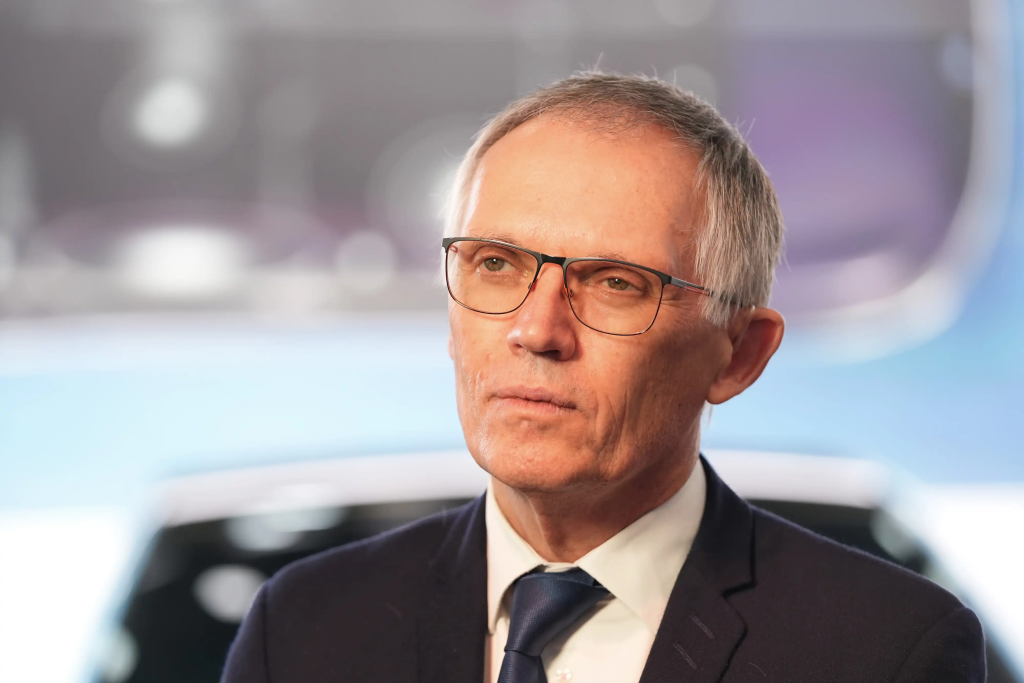
Carlos Tavares sees Chinese automakers playing the dual role of saviors and predators of a Europe weakened by environmental policies and the industrial crisis
The presence of Chinese automakers in Europe is growing at a rapid pace — and, according to the former president of Stellantis, Carlos Tavares, this advance could completely transform the continent’s automotive sector. The Portuguese executive, who led the group responsible for brands such as Peugeot and Jeep, believes that Beijing companies will end up being seen as “saviors” of European factories and jobs, while, in practice, they will be consolidating a dominance that could lead to the decline of traditional Western manufacturers.
In an interview with Financial TimesTavares issued a warning: “Many interesting opportunities are emerging for the Chinese. The day a Western automaker is in serious trouble, with factories on the verge of closure and demonstrations in the streets, a Chinese automaker will come along and say, ‘I’ll take over and keep the jobs,’ and will be seen as a savior.”
The former CEO, who left Stellantis about a year ago after an internal conflict within the board, painted a bleak outlook for European automakers. According to him, the sector faces a hostile environment, pressured by strict environmental regulations, changes in electrification policies and the growing global trade war.
Tavares believes that over the next 10 to 15 years, Chinese companies will not only expand their presence in Europe, but will also begin to acquire factories and increase stakes in local groups. This movement, he says, has already begun: brands such as BYD, Geely and Leapmotor are quickly gaining ground in strategic markets such as the United Kingdom, France and Germany, offering advanced electric and hybrid vehicles at competitive prices — even with higher import tariffs imposed by Brussels.
Stellantis itself, during Tavares’ management, entered into a partnership with the Chinese company Leapmotor, acquiring 20% of the group and helping it enter international markets. “The reason is simple: they want to swallow us one day”, acknowledged the executive, who stated that he had been approached by several Chinese companies interested in having him as an advisor or manager.
Other alliances also illustrate this trend. Renault has teamed up with Geely to develop combustion engines, while Nissan is considering allowing its partner Dongfeng to produce vehicles at its Sunderland plant in the United Kingdom.
Tavares left Stellantis after leading the billion-dollar merger between the French PSA and the Italian Fiat Chrysler Automobiles, completed in 2021. The operation, valued at around US$50 billion, gave rise to one of the largest automotive groups in the world. However, sales difficulties in both Europe and the United States and internal debate over the speed of the transition to electric vehicles ultimately led to his departure.
The former president harshly criticizes the European Union’s environmental policies, which determine the end of the sale of combustion cars by 2035. For him, the measure represents “a huge waste and stupidity”, as it ignores other viable technologies, such as hybrids. “Who will hold the EU responsible for the €100 billion in investments that will not be used? Nobody”, he asked.
Even after leaving, Tavares maintains a critical and provocative view of the future of the sector. He believes only five or six automakers will survive globally in the coming decades, citing Toyota, Hyundai, BYD and possibly Geely as the leading candidates. Tesla, according to him, will end up “overtaken by Chinese manufacturers”, with Elon Musk probably turning his attention to other projects.
In his recently released book, A Pilot in the Storm (“A pilot in the storm”), the executive dedicates a chapter to defending his controversial salary at Stellantis — which reached €36.5 million in 2023 and generated criticism among unions and shareholders. Tavares, known for his rigorous stance on cost reduction and for predicting a “Darwinian outcome” for the sector, spares no criticism even of giants like Volkswagen, which, according to him, symbolizes “Europe’s inability to change”.
Despite his pessimistic tone, Tavares says he has no regrets. “I’m not in self-flagellation mode,” he said, ironically. And he added, in a self-criticism of the sector’s corporate culture: “One of the problems of the automobile industry is that, like me, its bosses have inflated egos and personalities and want to show their friends that they are right.”
Currently investing in companies in Portugal, his home country, Tavares says he would only return to the automobile industry if he had a relevant shareholding in any company he returned to manage. “I imposed an impossible condition on this idea — which is another way of saying I’m not going to do it,” he concluded.
Meanwhile, the warning echoes behind the scenes in European industry: in an attempt to keep jobs and factories open, the continent may be opening the doors for China, with its technological and strategic strength, to become the true owner of Europe’s automotive future.
Source: https://www.ocafezinho.com/2025/11/08/na-crise-europeia-a-china-oferece-socorro-e-conquista/

